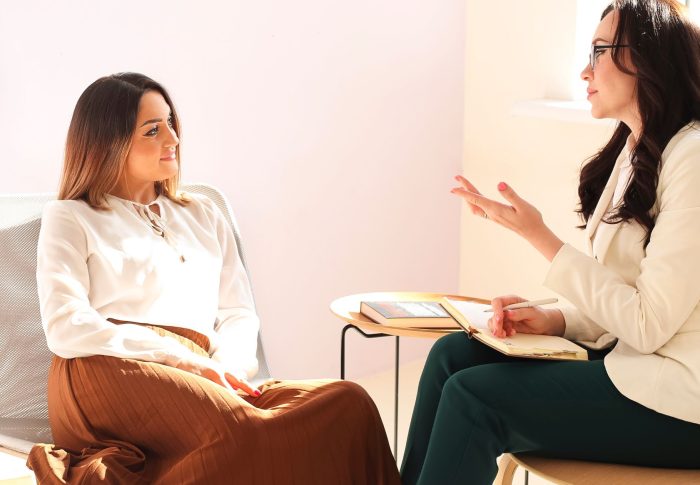
The Dynamics of Love and Relationships: Nurturing Healthy Connections
Love is a powerful force that shapes much of our lives, influencing our actions, thoughts, and emotions. In romantic relationships, love can bring joy, fulfillment, and a deep sense of connection. Yet, maintaining a healthy and enduring relationship requires more than just passion and chemistry. Understanding the dynamics of love and relationships—how they evolve, how to communicate effectively, and how to navigate challenges—can help couples build stronger, more resilient connections. In this article, we explore key elements of healthy relationships and how to nurture them.
The Foundation of Love: Mutual Respect and Trust
At the heart of every strong romantic relationship lies mutual respect and trust. These two pillars create a solid foundation where both partners feel valued, understood, and safe. Respect means acknowledging each other’s individuality, boundaries, and needs. It’s about treating your partner as an equal, listening to their opinions, and offering support when they need it. Trust, on the other hand, allows couples to feel secure and open with one another, fostering intimacy and emotional closeness.
Without respect and trust, relationships can easily become strained. A lack of trust can lead to insecurity, jealousy, and conflict, while disrespect can manifest as dismissive behavior, criticism, or neglect. Building and maintaining these qualities requires open communication, honesty, and a willingness to show vulnerability. By consistently demonstrating respect and trust, couples can create an environment where love can flourish.
Effective Communication: The Key to Understanding
Communication is often cited as one of the most important aspects of any relationship, and for good reason. Effective communication allows couples to express their feelings, share their concerns, and solve problems together. Whether it’s discussing future goals, dealing with a disagreement, or simply sharing how your day went, being able to talk openly and honestly is crucial.
However, communication isn’t just about talking—it’s also about listening. Active listening is an essential skill in any relationship. It involves truly hearing your partner’s words, understanding their feelings, and responding with empathy. When both partners feel heard and understood, it fosters a deeper emotional connection.
Another important aspect of communication is non-verbal cues. Body language, facial expressions, and tone of voice all convey meaning and can enhance or hinder communication. Being mindful of how you communicate, both verbally and non-verbally, can help prevent misunderstandings and strengthen your bond.
Intimacy: The Emotional and Physical Connection
Intimacy is not just about physical affection; it’s about emotional closeness and vulnerability. A strong emotional connection is essential for sustaining a long-term relationship, and intimacy allows couples to feel connected on a deeper level. Sharing personal thoughts, feelings, and experiences helps build trust and understanding.
Physical intimacy, such as hugging, kissing, and sex, also plays a significant role in strengthening the emotional connection between partners. However, it’s important to note that intimacy should be mutually satisfying and consensual. Both partners should feel comfortable expressing their needs and desires, and it’s crucial to prioritize each other’s well-being and comfort.
Building intimacy requires time and effort. It’s about making your partner feel special, creating shared experiences, and showing affection regularly. It’s also about being emotionally available and willing to support each other through life’s challenges.
Navigating Conflict: Resolving Disagreements with Respect
No relationship is without conflict. Disagreements are a natural part of any partnership, but how you handle them can make all the difference. Conflict resolution is an essential skill for maintaining a healthy relationship. Instead of avoiding arguments or letting resentment build up, it’s important to address issues openly and respectfully.
When conflicts arise, it’s helpful to approach them with a problem-solving mindset rather than a combative one. Stay calm and avoid blaming or criticizing your partner. Instead, focus on expressing your feelings and needs using “I” statements, such as “I feel hurt when…” or “I need more support with…”. This approach reduces defensiveness and opens the door for constructive conversation.
It’s also important to take time for reflection. Sometimes, taking a break from the conversation can help both partners cool down and gain perspective. In some cases, seeking professional help from a therapist can provide valuable tools for resolving deeper issues.
Supporting Each Other’s Growth: Encouraging Individuality
A healthy relationship isn’t about losing yourself in your partner; it’s about growing together while maintaining your individuality. Supporting each other’s personal growth and pursuing individual interests can strengthen the relationship. Healthy couples encourage one another to explore their passions, develop their careers, and maintain friendships outside of the relationship.
While spending quality time together is essential, it’s also important to allow each other the space to pursue personal goals and ambitions. Encouraging your partner to grow as an individual not only fosters mutual respect but also contributes to a stronger, more fulfilling partnership.
The Role of Appreciation and Gratitude
One of the simplest yet most powerful ways to nurture a relationship is through appreciation. Taking the time to express gratitude for your partner’s efforts, big or small, can go a long way in strengthening your emotional connection. Compliments, acts of kindness, and showing affection are all ways to demonstrate that you value and appreciate your partner.
Gratitude also helps couples maintain a positive outlook, even during difficult times. Focusing on what you love and admire about your partner can shift your mindset and bring more joy into the relationship. When both partners feel appreciated, it creates a positive feedback loop, fostering love, trust, and respect.
Conclusion: Building Lasting Love
Building and maintaining a healthy, lasting relationship takes effort, but the rewards are immeasurable. Love requires mutual respect, effective communication, trust, and intimacy. It involves supporting each other’s personal growth, resolving conflicts respectfully, and showing appreciation for one another. When both partners are committed to nurturing their connection, they can build a bond that not only survives the ups and downs of life but thrives through them.
Romantic relationships are complex, and there will inevitably be challenges along the way. However, with dedication, patience, and a shared commitment to growth, love can deepen and evolve into something even more beautiful over time. Whether you’re in the early stages of a relationship or celebrating years of togetherness, understanding the dynamics of love and relationships can help you foster a connection that stands the test of time.






